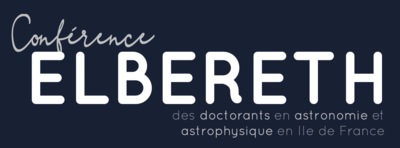Orateur
Description
The development of satellite swarm technology offers new possibilities for space studies and comes with new challenges. Among them is the need of knowledge on the swarm topology and attitude, especially in the context of space based radio interferometry. This paper presents an algorithm that recovers the absolute swarm attitude without the help of external systems such as GNSS (Global
Navigation Satellite Systems). This algorithm uses the imaging capability of a low frequency radio interferometer in order to function like a star-tracker using the main radio sources in the sky. The Lost-In-Space (LIS) mode is presented in this paper. The Tracking mode is yet to be developed. This algorithm is studied
through numerical simulations.
This concept is applied here to the kilometric wavelength spectral range (30kHz-1MHz) but the technique can be expanded to higher frequencies.
Images are reconstructed using an iterative Discrete Fourier Transform (DFT) at two frequencies and using source subtractions. Pattern-matching is run with a voting system implemented on geometrical parameters defined by triangles of sources. The radio sky at low frequency is modelled by extrapolating from sky observed at 50 MHz. Also, the modelled interferometer corresponds to the NOIRE (Nanosatellites pour un Observatoire Interferométrique Radio dans l'Espace) concept study. The accuracy on the recovered swarm attitude is measured for different levels of noise in the interferometric visibilities.
The simulation shows that, under some hypothesis, the suggested pipeline can achieve an attitude knowledge error lower than 1 arcmin for a swarm scale of 100 km. The requirements in terms of memory and computation capability are discussed as well as the limitations of the technique and
the simulation.
| Field | Instrumentation |
|---|
